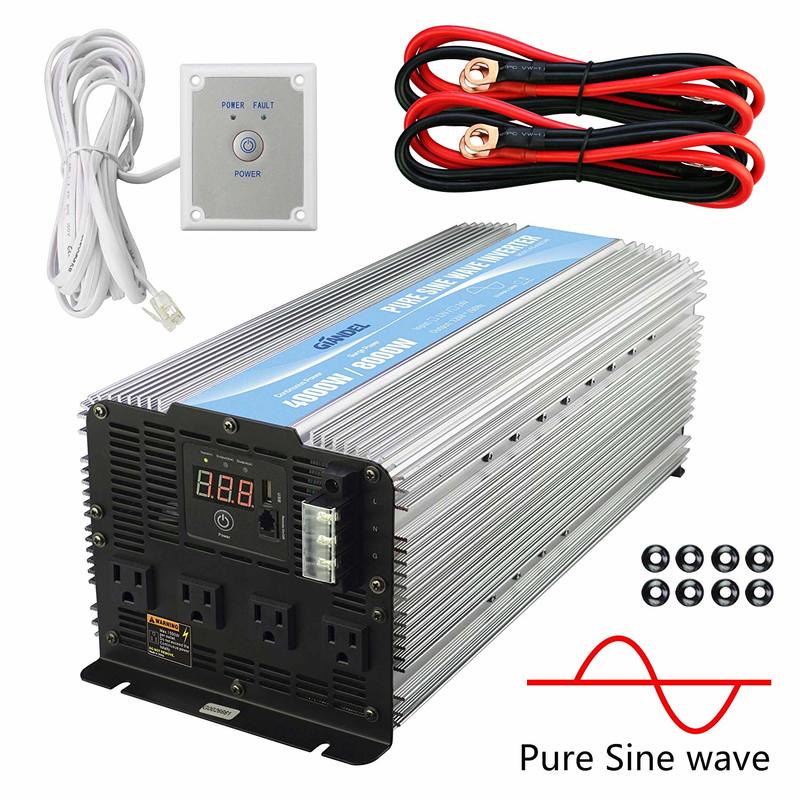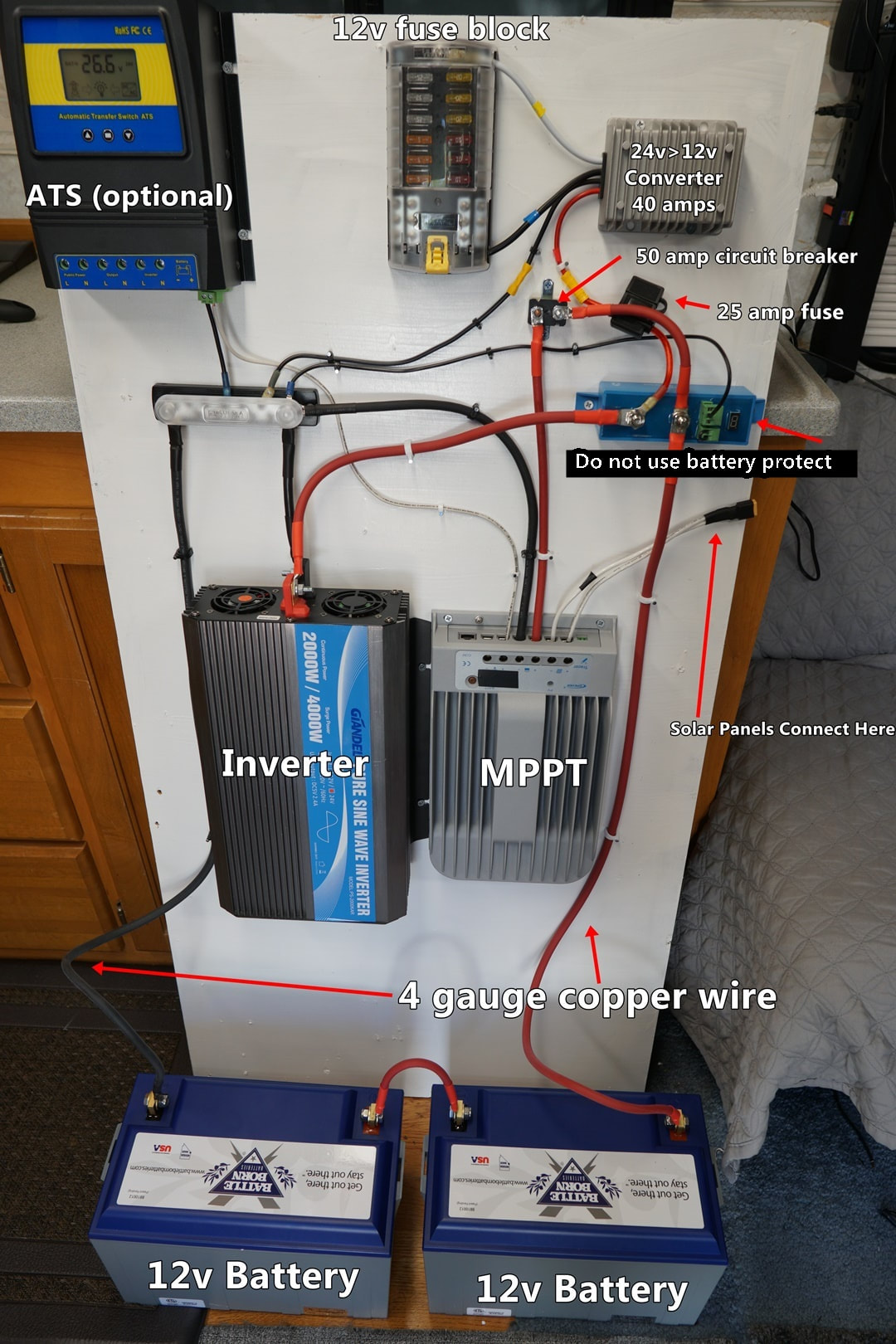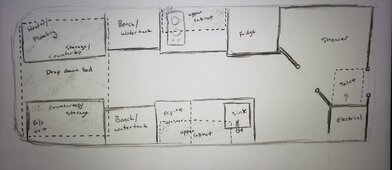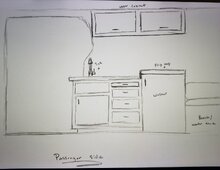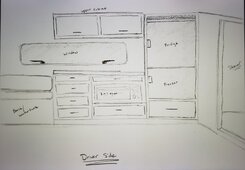I am SOOOO confused bu all these posts, I wanna cry.......
I would REALLY love someones to help who knows this stuff as well as Will Prowse! I WILL PAY for this expert help of designing a system for my van and my specific needs! I listed what I will have in the van in the original post. I am OPEN to anything else. Size of watts on roof, amps of batteries, which second alternator to get, 12, 24, or 48 volts. I AM OPEN! I think I allocated A LOT of money for a steller solar system that should run my needs indefinalty without needing to be hooked into shore power. (The solar panels will probably be around $4200 of the budget since they are SUPER expensive walk on panels I listed above.). The roof rack will be Orion 100%, as I just WON IT with their give a way!!! ;-)
Can these both be used together? Should they be? I need massive help please!
Building a vehicle mounted solar power system? Let me help.
www.mobile-solarpower.com
Optimize your solar energy generation with Victron's RS 450V MPPT Charge Controller. Programmable settings, seamless setup, & enhanced connectivity options.

www.currentconnected.com
So, are you in the US? May make a difference for parts available. Most folks here know airco means air-conditioning, makes me think not US? I will assume you can get everything I can on Amazon though, for same prices as Phoenix. But location affects power usage for air-conditioning.
I went through your list of items to run, and looked up or calculated the power use on every one I thought. You don't really have many 12v things to use-- these are LED lights, maxxair fans, chinese diesel heaters, small fans. And most all 12v stuff ALSO works on 24v--LED lights, small fans. Only the Fantastic Fan from Dometic or Maxxair fan need 12v, and your diesel heater.
This is why I like 24v better than 48v-- all that low power super cheap stuff like lights can be had in 24v. And so can all the system parts! Fuses, fuseboxes, cheap circuit breakers, on/off switches-- all work at 24v and are inexpensive. But fuses stop at 32 or 36v, and most all the inexpensive switches and circuit breakers used in marine and RVs do NOT cover the 56v needed to charge 48v! Every single item now costs $200 instead of $30, is hard to find, and has to be diligently looked at for function above 32 or 48v.
24v gives you the same advantages for smaller cables, and ability to power larger inverters. Not as much as 48v, but ENOUGH, and you don't have the parts issues, while still getting all the small 12-24v stuff to work.
So, what do you need? Look at Will Prowses video for a 24v system, this is basically a good example of what you need. With a few tweaks for a van-- you want to use more power than you can get from the solar panels you can fit on a van! So power comes from 800 to 1000w solar (max you can fit), your 2nd alternator, and shore power.
Since it is a 2nd alternator, can just use a dcdc convertor, cheaper, as it won't be a smart alternator. And for shore power, either a charger inverter with pass thru OR a transfer switch like he shows in video below.
Building a vehicle mounted solar power system? Let me help.
www.mobile-solarpower.com
As you can see in this video, if you choose parts smartly, that already have overcurrent protection in them, you may not need those fuses etc, making 48v the smarter choice if designed with right parts!
Your desired system-- reread those amounts of power I listed. Your air-conditioning is the main power use.
For 24 hrs of highish airco, plus your cooking use etc, I figure 22,000wh of batteries. Your AC power use, you can get by with a 2000w inverter that has a surge ability over 3000w. But I would go with a 3000w inverter. Either 24 or 48v system can support a 3000w inverter, but a 12v system would be sketchy. A 12v could do 2000w, but if you're spending all this money, don't get yourself a limited system that can never grow! You sound like someone who would use a lot of ac power if it was available.
If you need to run airco for 24 hrs off batteries, that is the big item in your system. 916Ah if 24v battery, or 458Ah if 48v system. So with 4x 230ah 24v LiFePO4 battery, that is 920ah and $5600.
Here, go watch some of this guys videos. He builds van electrical systems, exactly what you're asking for. Watch his start to finish video
And this one, 12, 24, or 48v?
I don't know why you want those expensive walk on panels though, no one walks on a van roof, biiig waste of $$$$. For what you want, your budget, and your knowledge level to fix stuff, I would just get all Victron parts, except batteries and panels.



